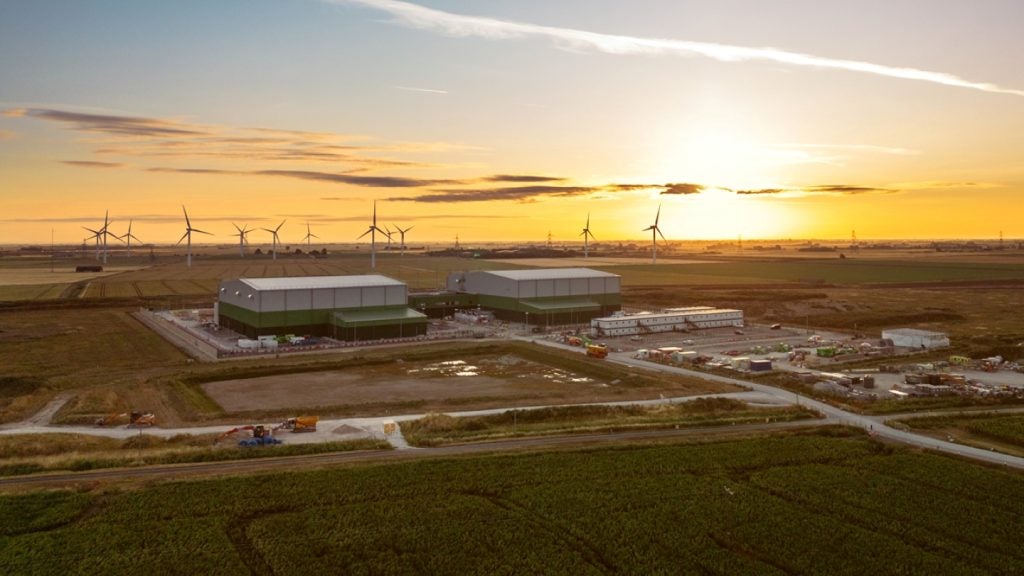
US Department of Energy awarded $620m to smart grid projects in its second wave of stimulus funding. The power sector has committed to even more investment, bringing the amount to be ploughed into the industry to $1.6bn.
The grant has been distributed to fund 32 smart grid pilot projects across the US. Market analyst GlobalData’s Smart Grid Stimulus Round Two: Launch Pad for Pilot Projects report says the two major objectives of the funding are testing the compatibility of various smart grid technologies and verifying the business viability of the implementation of smart grid systems.
The two rounds of smart grid stimulus funding are expected to create a significant number of green collar jobs in the US that will help ease the strain of the recession.
The smart grid stimulus for pilot projects has covered 19 states. Nine have received direct funding while ten have indirectly benefited from projects planned by companies or utilities based in other states.
The second round of funding will help realise the potential of the smart grid to increase the efficiency of power transmission and reduce electricity usage.
See Also:
The pilot projects in the second round of stimulus funding cover all related technologies, from distributed generation to smart consumer technologies. A handful of projects also focus on improving the security of the grid.
How well do you really know your competitors?
Access the most comprehensive Company Profiles on the market, powered by GlobalData. Save hours of research. Gain competitive edge.

Thank you!
Your download email will arrive shortly
Not ready to buy yet? Download a free sample
We are confident about the unique quality of our Company Profiles. However, we want you to make the most beneficial decision for your business, so we offer a free sample that you can download by submitting the below form
By GlobalDataA major shift took place in the second round, where a significant number of private players were awarded direct funding.
Unlike the first round of funding, in which private corporations received only 1.1% of smart grid grants, their share increased to 11% during the second round. The primary recipients from the private sector mainly belong to the energy storage industry.
Storage projects have received a high proportion of funds. Of the total amount in the second round $185m has been allocated to encourage development and deployment of smart grid storage systems.
The utility-scale storage projects are aimed at enhancing the reliability of power distribution and reducing dependence on centralised generation plants.
North Carolina has been the top recipient cumulatively across both rounds of funding, with grants totalling $425.7m. California, however, received most in the latest round, with total grants of $174.6m, followed by Washington with $88.8m. California has benefited from a dual inflow of funds, receiving grants for five smart grid pilot projects and 12 energy storage projects.
Top recipients
The top five recipients for smart grid pilot projects are:
- The Battelle Memorial Institute, Pacific Northwest Division has received $88.8m to facilitate the demonstration and validation of smart grid technologies that will cover 60,000 consumers across five states. The project will replicate all aspects of a smart grid on a smaller scale and test the viability of the implementation of smart grid technologies.
- Columbus Southern Power Company has received smart grid funding aimed at setting up an interstate smart grid covering 110,000 customers. The aim is to improve the efficiency of power distribution throughout the grid. The project will incorporate distribution-end technologies such as distribution automation and control, smart meters and smart appliances.
- The Los Angeles Department of Water and Power has been given $60.2m for its smart grid pilot project that involves the deployment of smart grid technologies in collaboration with local research institutions. The smart grid will be developed at the campus of a partner university.
- The $45.4m pilot project of the Consolidated Edison Company of New York will be used to develop a smart grid prototype. It will help improve cyber security features, increasing reliability and energy efficiency.
- Southern California Edison’s $40.1m smart grid pilot project will help launch a fully-fledged smart grid system covering all key technological areas such as transmission and distribution, consumer applications and communications.
This and more reports are available to purchase at: GlobalData.







